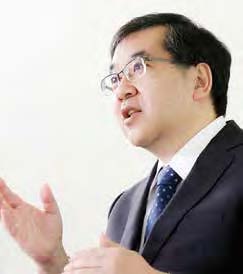What the University of Tokyo is aiming for to make the world a better place
The University of Tokyo celebrated its 139th anniversary in April this year.During this time, he has sent out a lot of research to the world and sent out many seniors who lead the world.In Japan, we have sent out a wide range of leaders in politics, government, business, medicine, and legal affairs.
Especially after the war, as the Japanese economy developed significantly, we have nurtured the people who will lead it.But now the world has many problems.Problems such as resource depletion, destruction of the global environment, global financial instability, widening inequalities between regions, and religious conflicts are becoming more serious on a global scale.Looking at the world situation this year, it seems that the world is heading in a more unstable direction, starting with international financial instability and tensions in the Middle East and East Asia.Where are the hints?
Some may think that the development of science and technology will solve the problem.However, science and technology itself does not solve the problem.It is the thinking people, that is, you, who take advantage of it and move toward solutions.
Last year, I was very happy to receive the Nobel Prize in Physics for Professor Takaaki Kajita, a special honorary professor at the University of Tokyo.This is the eighth graduate of the University of Tokyo to receive the Nobel Prize.It was an event that made me proud that Japan is an overwhelmingly advanced academic country in Asia and that I feel a responsibility to further develop this tradition.
In view of the world situation and history, we thought about the role that the University of Tokyo should play, and announced it in "The University of Tokyo Vision 2020" in October last year.Therefore, we have positioned the university as a "world center for collaborative creation of knowledge" that contributes to the global society of the century.The meaning of the word "co-creation" is not the self-reliance of the university, but the creation of new value together with society.In addition, the philosophy that goes through the whole is "mutual linkage between excellence and diversity."The continuous interlocking of world-class research results, "excellence" in educational settings, and "diversity" where people with various academics and ideas gather will dynamically evolve science. ..In this way, the University of Tokyo wants to be a place to convey new value to society.


